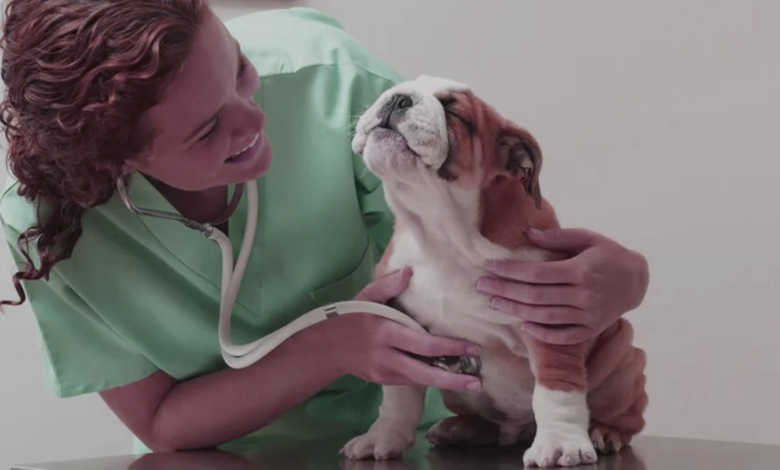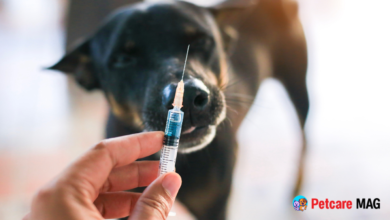
Pet Healthcare Plans in Florida: What’s Covered and What’s Not?
Explore pet healthcare plans in Florida: coverage details, exclusions, and costs. Find the best plan for your furry friend today.
Pet healthcare plans in Florida are becoming increasingly essential for responsible pet owners who want to ensure their furry companions receive the best possible medical care without facing overwhelming expenses. These plans, which can include insurance policies, wellness programs, and discount memberships, help cover everything from routine check-ups to emergency surgeries. However, not all plans are created equal coverage varies widely, and exclusions can leave pet owners with unexpected costs. Understanding the specifics of what is and isn’t covered under these plans is crucial for making informed decisions that align with both a pet’s needs and the owner’s budget.
As veterinary care continues to advance, so do the costs associated with keeping pets healthy. Pet healthcare plans in Florida offer a practical solution by spreading out these expenses over time, making quality care more accessible. Whether it’s preventive treatments like vaccinations or critical care for accidents and illnesses, the right plan can provide peace of mind. Yet, limitations such as pre-existing conditions, breed-specific exclusions, and waiting periods can impact coverage. This explore the key aspects of pet healthcare plans in Florida, helping pet owners navigate their options and choose the best protection for their beloved animals.
Pet Healthcare Plans in Florida
Pet Insurance Policies
Pet insurance is one of the most common healthcare plans, reimbursing pet owners for veterinary expenses related to accidents, illnesses, and sometimes preventive care. Policies in Florida typically fall into three categories Accident-Only Plans These cover injuries such as fractures, poisoning, or bite wounds but exclude illnesses. Accident and Illness Plan These provide broader coverage, including infections, cancer treatments, and hereditary conditions. Comprehensive Plans These may include wellness benefits like vaccinations and dental cleanings, though they come at a higher cost. Most pet insurance policies operate on a reimbursement model, meaning pet owners pay upfront and then file a claim. However, pre-existing conditions are almost always excluded.
Wellness Plans
Unlike insurance, wellness plans focus on preventive care, covering routine services such as annual exams, flea and tick prevention, and spaying/neutering. These plans are often offered directly by veterinary clinics or pet care providers and function as subscription-based services. While they don’t cover emergencies, they help maintain a pet’s long-term health.
Discount Veterinary Plans
Discount plans provide reduced rates on veterinary services for a monthly or annual fee. These are not insurance but can make vet visits more affordable. Coverage varies, with some plans offering discounts on medications, surgeries, and even alternative therapies like acupuncture.
What’s Typically Covered in Pet Healthcare Plans?
Routine and Preventive Care
Many wellness plans include Annual check-ups. Vaccinations (rabies, distemper, etc.). Flea, tick, and heartworm prevention. Dental cleanings. Microchipping.
Emergency and Illness Treatments
Accident and illness policies often cover Hospitalizations. Surgeries. Diagnostic tests (X-rays, blood work). Prescription medications. Chronic condition management (diabetes, arthritis).
Additional Benefits
Some premium plans may include Behavioral therapy. Alternative treatments (chiropractic, hydrotherapy). End-of-life care (euthanasia, cremation).
What’s Usually Not Covered?
Despite their benefits, pet healthcare plans have limitations. Common exclusions include Pre-existing conditions Any illness or injury diagnosed before enrollment is rarely covered. Breed-specific hereditary conditions Some policies exclude genetic disorders common in certain breeds. Cosmetic procedures Ear cropping, tail docking, and other non-medical procedures are not included. Experimental treatments New or unproven therapies may not be reimbursed. Routine grooming Bathing, nail trimming, and other non-medical services are excluded.
Factors to Consider When Choosing a Plan
Cost vs Coverage
When evaluating pet healthcare plans in Florida, one of the most critical considerations is balancing cost versus coverage. While higher premiums typically provide more extensive benefits—such as lower deductibles, higher reimbursement rates, and broader protection for accidents, illnesses, and even hereditary conditions—pet owners must carefully assess their financial situation and their pet’s specific needs. For example, younger pets with fewer health risks may thrive on affordable wellness plans that cover routine care like vaccinations and dental cleanings, whereas older pets or breeds prone to chronic conditions often require comprehensive insurance to offset the higher costs of diagnostics, medications, and specialized treatments.
Deductibles and Reimbursement Rates
Plans with lower deductibles and higher reimbursement rates (e.g., 80-90%) provide better financial protection but cost more monthly.
Waiting Periods
Waiting periods are a standard feature of most pet healthcare plans in Florida, requiring policyholders to wait a set amount of time typically 14 to 30 days for general illnesses and accidents—before coverage takes effect. For orthopedic conditions like hip dysplasia or ligament injuries, insurers often impose longer waiting periods, sometimes up to 6 months, to prevent fraudulent claims for pre-existing issues. These delays ensure pets aren’t enrolled only after an injury or illness is discovered. Pet owners should carefully review these terms when selecting a plan, as immediate emergencies during the waiting period won’t be covered.
Network Restrictions
Some plans require visiting in-network vets, while others allow any licensed veterinarian.
Age and Breed Limitations
Age and breed limitations significantly impact pet healthcare plans in Florida, with insurers often charging higher premiums or imposing coverage restrictions based on these factors. Older pets—typically those over 7 or 8 years old may face limited plan options, higher deductibles, or even exclusions for age-related conditions due to increased health risks. Similarly, breeds prone to hereditary issues (like Bulldogs with respiratory problems or German Shepherds with hip dysplasia) often see steeper costs or policy exclusions for breed-specific ailments. Some insurers may even refuse coverage altogether for certain high-risk breeds.
Read More: Microchipping Your Pet: Is It Worth It?
Conclusion
Pet healthcare plans in Florida provide invaluable financial protection and peace of mind for pet owners, ensuring their beloved companions receive necessary medical care without the burden of unexpected expenses. By the carefully evaluating coverage options whether through insurance, wellness plans, or discount programs owners can find a plan that aligns with their pet’s specific needs and their own budget. Understanding inclusions and exclusions, from routine check-ups to emergency treatments, is key to making an informed decision that safeguards both a pet’s health and a family’s finances.
Ultimately, investing in pet healthcare plans in Florida is an investment in a pet’s long-term well-being. While no plan covers every possible scenario, the right policy can significantly reduce out-of-pocket costs for veterinary care, allowing owners to focus on what matters most their pet’s health and happiness. By comparing providers, reviewing terms thoroughly, and consulting with veterinarians, Florida pet owners can secure the best possible coverage, ensuring their furry family members receive the care they deserve throughout every stage of the life.
FAQs
Are pre-existing conditions covered under pet healthcare plans?
No, most pet insurance policies exclude pre-existing conditions, meaning any illness or injury diagnosed before enrollment will not be covered.
Do wellness plans cover emergency vet visits?
No, wellness plans focus on preventive care like vaccinations and check-ups, while emergencies require accident and illness insurance.
Can I use any veterinarian with my pet insurance?
Most pet insurance plans allow visits to any licensed vet, but some discount plans may require in-network providers.
Are hereditary conditions covered?
Some policies cover hereditary conditions, but breed-specific exclusions may apply, so reviewing the fine print is essential.
Is Pet Healthcare worth the cost?
Yes, for many Pet Healthcare owners, these plans provide financial security, especially in emergencies, and help maintain long-term pet health through preventive care.







